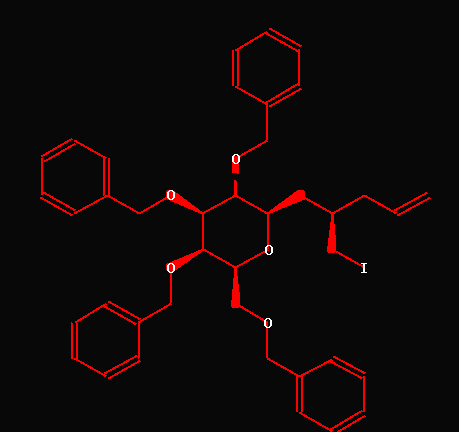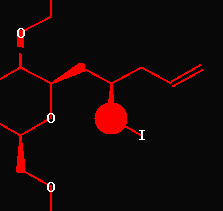J. Org. Chem., 68, 2506 (2003)
Compound #7 of this paper has a -CH -
( CH2 - I ) - moiety, the CH2-group attached to
the iodine atom is given at 75.3 ppm.
Iodine is known to induce a strong
highfield-shift, therefore a value of 75.3ppm is easily identified as
an extreme outlyer. Recalculation of the spectrum gives 12.8ppm
(CSEARCH-HOSE; range 10.5 - 15.9ppm) and 13.8ppm (CSEARCH-NN).
Obviously there is a difference of approximately 60ppm between the
literature value and both predicted values - this makes this example
interesting for further analysis.
In the 'Supplementary
Information' the C-NMR spectrum of compound #7 can be found on page
'S15'. There is the severly overcrowded region between 70 and 80ppm,
where nearly all CH-O and CH2-O are located. In the
high-field region there is a single signal at 16ppm clearly visible,
which can be easily attributed to the -CH2-I group.
Therefore the
summary is:
ppm/rounded
|
Literature
|
Experimental
|
CSEARCH-NN
|
CSEARCH-HOSE
|
-CH2-I
|
75ppm
|
16ppm
|
14ppm
|
13ppm
|
This article shows, that we have
clearly to distinguish between the 'LITERATURE
VALUE' for the chemical shift of a certain carbon and the 'EXPERIMENTAL
VALUE', which has been really measured !
In
the case of applying a 'robot-referee' during the peer-reviewing
process to this set of C-NMR data, it would be impossible to ignore
this error.
Visualization of this particluar entry
within CSEARCH
(Data-checking enabled)
Page
written by: Wolfgang.Robien(at)univie.ac.at
Page written on: March 6th, 2008
Page online since: March 6th,
2008


